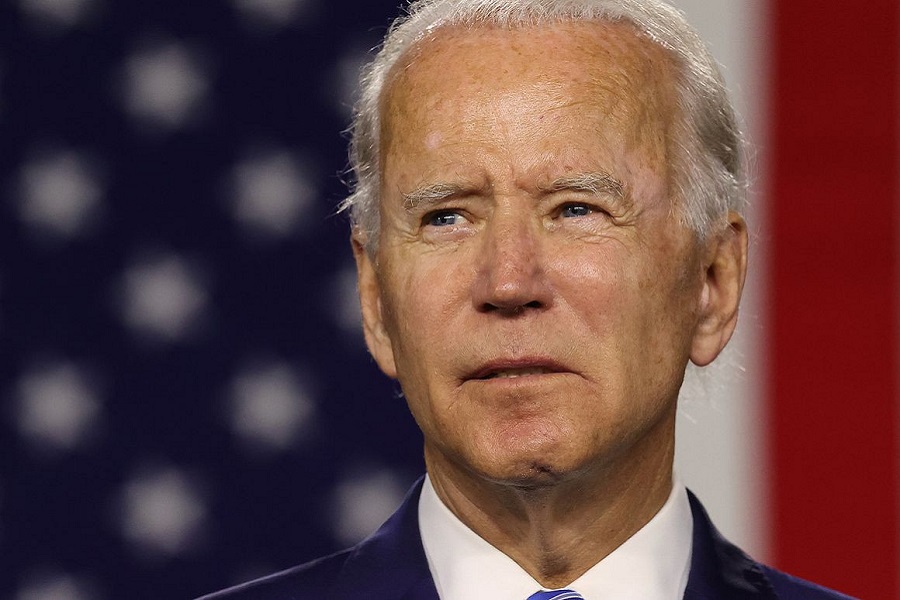
A Focus on Educational Opportunity for Biden’s First 100 Days
Blog Post
Despite the deep divisions in our country, there is a great opportunity ahead to make genuine progress on education priorities that can forge a better future for Americans—particularly when it comes to the important role community colleges play in addressing the needs of those farthest from opportunity. The twin crises of COVID-19 and the economic recession have been especially devastating to people of color and those from low-income backgrounds. U.S. community colleges, which are often the on-ramp to education for these students, lost more than 500,000 students this past fall, compared to the previous year. That’s 500,000 dreams delayed. When it comes to writing the next chapter of the story for community college students, there is no time to wait. Here are five areas where leaders of the Aspen Institute College Excellence Program suggest that the Biden administration should focus attention in the first 100 days and beyond.
Pell Grant Increases
Meaningful increases in Pell Grants. Black and Hispanic people in our country attain bachelor’s degrees at about half the rate of others; students from families in the top economic half are six times more likely to earn a bachelor’s as those from the bottom quartile. To address these deep inequities, the federal government should double Pell Grants, which have not increased nearly as fast as needed. To better support the disproportionate number of students of color and students from low-income backgrounds who start in community college before transferring to a four-year institution, the government should both increase the amount of time students are eligible for Pell Grants (from the current six years to eight) and increase the amount of money available, to account for the large tuition difference between community colleges and four-year institutions. This change would activate the talent of millions of community college students who otherwise might never achieve their dreams. —Joshua Wyner, executive director
Expanded Work-Based Learning Opportunities
Expanded work-based learning opportunities. Graduates often leave college not yet prepared for careers, because they haven’t had the chance to gain real-world experience and skills. This is especially true for lower-income students who have to take jobs outside their field while they’re in school, which often leads to them dropping out. The Biden administration should support legislation to expand work-based learning—including paid internships, apprenticeships, and cooperative education—at the secondary and postsecondary levels, through competitive grants to high schools and community colleges with career and technical education programs and tax incentives for employers that offer a living wage. Connecting programs of study with career-relevant part-time employment will encourage more students to complete their programs and better prepare them to get and succeed in well-paying jobs. —Bob Templin, senior fellow
Challenge Grants for Community College-Title I High School Partnerships
Improved access through partnerships with high-poverty high schools. The Biden administration should introduce challenge grants for community colleges to establish ongoing partnerships with Title I high schools, to help more students from low-income backgrounds prepare for, enter, and complete postsecondary programs. Students from Title I high schools continue to have significantly lower high school completion rates and college-going rates than children in non-Title I schools. Challenge grants of up to $300,000 would incentivize community colleges to develop sustainable partnerships that improve high school completion, establish bridge programs, and smooth educational pathways from high school to college to careers providing family-sustaining wages. —Bob Templin, senior fellow
Greater Educational Opportunity for Dreamers
Greater educational opportunity for Dreamers. For the past three years, millions have been living in precarious limbo as the Department of Homeland Security terminated, then reinstated by court order, the Deferred Action for Childhood Arrivals (DACA) policy. The reinstated DACA policy is meant to comply only in the most minimal terms with its original intent, given the court’s direction that it was improperly terminated by the Trump administration. But even at its best, DACA is a tenuous and inadequate policy solution. While Congress perennially fails to act, millions of young Dreamers, who immigrated as children and don’t have documentation, are working, studying, and contributing to their communities. President Biden should be commended for his new executive action that makes it a priority to secure paths to citizenship in law for Dreamers and others impacted by DACA. But he should go further and introduce a comprehensive agenda to advance educational opportunity for Dreamers—including following the example of the 19 states that provide in-state tuition benefits to DACA students by incentivizing other states to do so; giving those students access to federal student loans, Pell Grants, and work-study; and changing federal law to make DACA students eligible for professional licensure in high-demand fields like health care and education. Our communities need these students’ talents and skills, and they deserve better. —Keith Witham, managing director
Tuition-Free College for Frontline Workers
Tuition-free college for frontline workers. Now is the time for a GI Bill for essential workers that would offer a free or low-cost pathway to a college degree or skills certificate. The federal government could replicate a new Michigan program, Futures for Frontliners, that provides a tuition-free community college education for workers who have helped save lives and kept our communities operating during the COVID-19 pandemic. Nearly 70 percent of essential workers do not have a college degree. The program would allow many of these people with low incomes and only a high-school diploma to increase their skills and boost their earning opportunities, while preparing them for entry into occupations that are in high demand. —Ruth Whitman Chacon, senior communications manager
